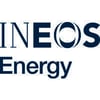Work Behaviour Assessment and Profiling
Our work behaviour assessments provide in-depth insights into the personality traits and work styles that shape how individuals perform in professional settings. By analysing specific behavioural patterns, our tests help businesses understand team dynamics and improve collaboration, communication, and overall efficiency.
Whether you're looking to enhance your hiring process or develop stronger team engagement, our assessments offer a clear understanding of strengths, weaknesses, and how employees can adapt to different work environments. Start improving your team’s performance today with our personalised behavioural assessments!
- ✅ Improve team-wide performance by 32%
- ✅ Reduce employee churn by 20%
- ✅ 53% increase in effectiveness of internal and external communications

Loved by effective companies of all sizes





What is a Work Behavioural Assessment?
A work behavioural assessment is a tool used to measure specific traits and behaviours that influence how individuals perform in the workplace. It helps employers understand an employee’s work style, decision-making processes, and interaction with others in various professional situations.
These assessments are often used to enhance recruitment, improve team dynamics, and support personal development. They can provide insights into an individual’s strengths, weaknesses, and how well they align with the company culture or role requirements.

Why people love C-me


“C-me has allowed teams to have conversations about communication and behaviour in a clear, consistent and non-confrontational way.”


“C-me has given us valuable insight into potential group dynamics as well as a starting point to construct meaningful questions.”

“C-me is an enabler to support everyone at LMG to be more aware, involve the right people and to create a solution approach.”


“C-me has helped enable our teams in understanding and appreciating difference.”


“It helped us appreciate each other’s communication preferences better, and understand and avoid previous areas of misunderstanding.”

“Participants on the course state that they are more measured in their responses and have a greater understanding of peoples behaviour.”


“C-me has coloured our working world and improved our working relationships.”


“C-me has been a critical tool to enhance our new performance review process.”


“The great strength of C‑me is its accuracy and its simplicity to use.”
What Does a Behaviour Profiling Test Reveal About Your Team?
A behaviour profiling test provides a clear view of how your team members approach work, make decisions, and communicate. These assessments highlight:
- Strengths and weaknesses of individuals
- Preferred communication styles
- How each member collaborates with others
Understanding these behavioural aspects allows you to create better-balanced teams, improving both productivity and employee satisfaction. It also pinpoints areas where development is needed, helping leaders support growth more effectively.

How to Effectively Use Behavioural Assessments?
To get the most out of behavioural assessments, it’s essential to use them throughout the hiring process. By evaluating candidates early on, hiring managers can identify those whose behaviours align with the job requirements and team dynamics, ensuring a better cultural fit.
Once hired, behavioural assessments can be used to optimise team building. They offer managers insights into how employees collaborate, which can help improve communication, reduce conflicts, and enhance overall productivity.
These assessments are also valuable for continuous development. They help employees understand their own behaviours, providing opportunities for personal growth and adaptation, which leads to better job performance.

Benefits of Behavioural Hiring Assessments
Behavioural hiring assessments offer businesses a clear advantage by helping them understand not just a candidate's skills but also their personality and how they fit within a team. Below are six key benefits of integrating behavioural assessments into the hiring process.
Better Cultural Fit
These assessments allow you to determine whether a candidate’s personality aligns with your company culture. Hiring someone whose values and work style match your culture ensures smoother onboarding and greater employee satisfaction.
Reduced Hiring Bias
Traditional interviews can be subjective, but behavioural assessments offer an objective way to evaluate candidates. By focusing on measurable traits, these tests help reduce unconscious bias, leading to more equitable hiring decisions.
Predictive of Job Performance
Certain personality traits, such as conscientiousness or emotional stability, are strong indicators of job performance. Behavioural assessments provide data on how well a candidate is likely to handle the responsibilities and pressures of the role.
Improved Employee Retention
Hiring candidates who fit both the job role and company culture reduces turnover. When employees feel well-suited to their environment and position, they are more likely to stay long-term, saving costs on rehiring and retraining.
Enhanced Team Dynamics
These assessments also help ensure a new hire complements existing team dynamics. By understanding personality types in advance, managers can create balanced teams that work together more effectively.
Streamlined Hiring Process
With behavioural assessments, the hiring process becomes more efficient. Employers can quickly identify top candidates, reducing the time spent on interviews and ensuring that only the most suitable applicants proceed to the final stages.

Are There Any Limitations to Behavioural Assessments?
While behavioural assessments provide valuable insights into personality traits and work styles, they have some limitations. These challenges need to be considered when integrating them into the hiring process.
- Limited Scope of Traits: Behavioural assessments focus on certain personality traits but may miss other critical skills such as cognitive ability or technical expertise. To overcome this, use additional tools like cognitive ability tests for a more comprehensive evaluation.
- Potential for Inaccurate Responses: Candidates might adapt their answers to what they believe the company wants to hear, leading to less accurate results. To reduce this, incorporate structured interviews to cross-check the behavioural assessment data.
- Lack of Contextual Insight: Behavioural tests don't always reflect how someone reacts under real-world stress or in complex situations. Combine the test with scenario-based interviews to assess real-time problem-solving and adaptability.
By addressing these limitations with complementary tools, behavioural assessments can still provide valuable insights into the hiring process.

What our clients say about us

C-me has been a really useful tool; using them to not only develop our own self-awareness, but also learn how to communicate better as a team has been really invaluable.

The impact C-me profiles have on teams and the organisation as a whole has been fascinating and refreshing. Individuals have shown more empathy, inclusivity and understanding of their colleagues, creating a happier and more productive culture. I would feel confident in recommending C-me as it creates a shared language for discussing behaviour and difference.

How Our Behavioural Profiling Tools Can Transform Your Team
Our work behaviour assessments are designed to give businesses valuable insights into their employees' personality traits and work styles, helping to enhance team dynamics and improve overall performance. These tools, including personality tests and workplace personality tests, provide actionable data to help you make smarter decisions about team collaboration and individual roles.
Using assessments we help you identify key behaviours such as leadership potential, adaptability, and emotional stability.
These tools enable businesses to predict job performance, streamline the hiring process, and build a positive company culture that encourages growth and emotional intelligence.
With our comprehensive personality assessments and behavioural tools, you'll gain insights into each team member’s strengths, weaknesses, and overall fit within your organisation, driving better performance and employee engagement.


